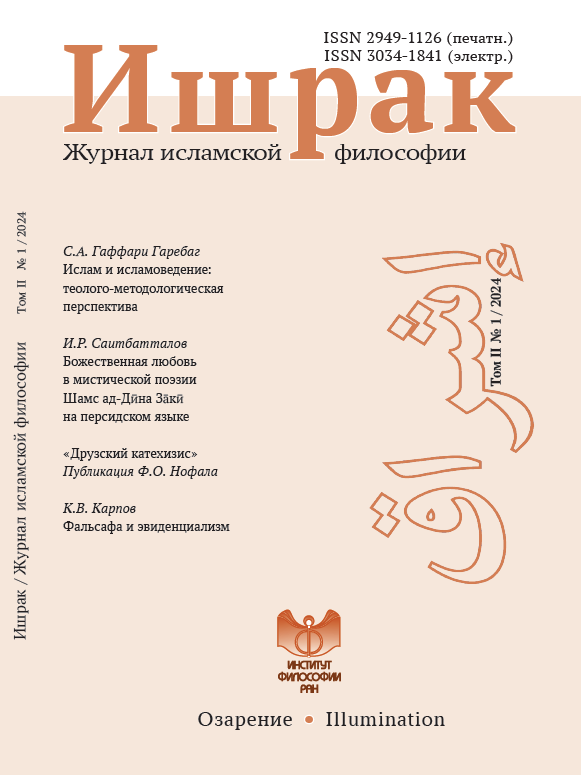Divine Love in Persian Mystical Poetry of Šams al-Dīn Zākī
DOI:
https://doi.org/10.21146/2949-1126-2024-2-1-23-37Keywords:
Divine Love, Naqshbandiyya, Persianate, Sufi Literature, Sufism in BashkortostanAbstract
The paper deals with the ideas of divine love contained in two previously unpublished and unexplored poems by the Bashkir poet and scholar Šams al-Dīn Zākī (1822–1865) in Persian. By comparing his text with the works that were part of his reading outlook, as well as the key texts of the Naqshbandiyya-Mujaddidiyya order, a connection is established between the ideas of the Sufi poet and the idea of “essential love” formulated by the Indian mystic of the 17th century Aḥmad Sirhindī. This love is not an ecstatic state, but a path of constant self-improvement with the goal of displacing from the mystic’s soul any aspirations and desires other than complete acceptance of the divine will. In Zākī’s poem, love takes on an ethical dimension. The result of its manifestation is the truthfulness of the mystic — the correspondence of external and internal in his behavior and motivation. The verbal expression of these ideas is based on a vast corpus of classical works of Persian literature from the 11th to 13th centuries, with Farīd al-Dīn ‘Aṭṭār and Jalāl al-Dīn Rūmī being the two most frequently cited authors.


